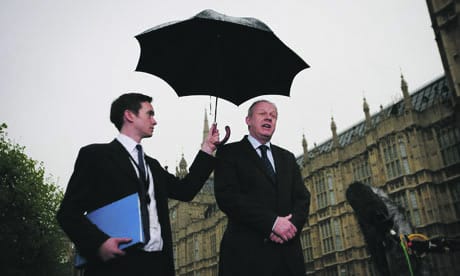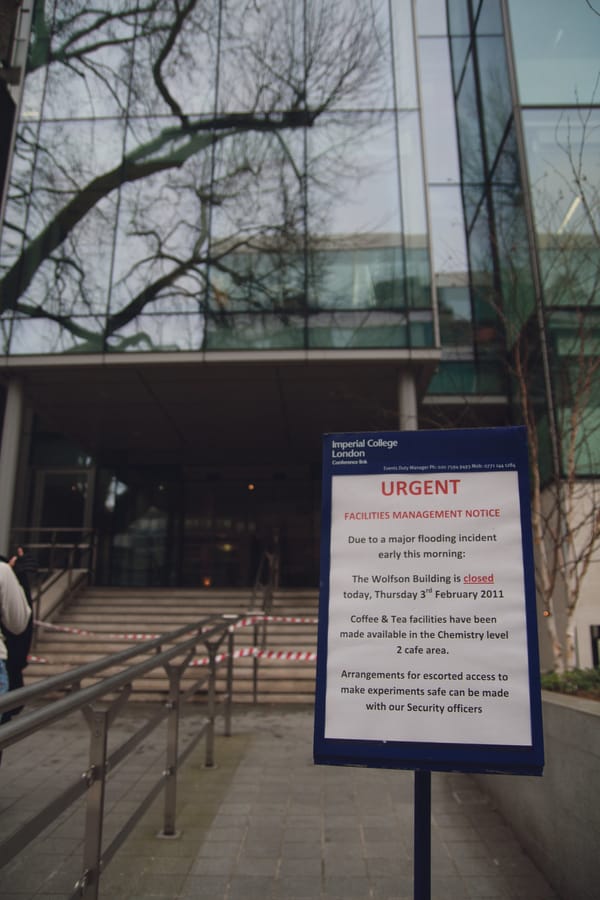Deterring Internationals
The Government’s visa proposals risk catasrophe argues Ksenia Rostislavleva

On January 26th, a press-conference focused on the international student migration regulations was held in the Queen Elizabeth II Conference Center. The speakers included Tony Millns (English UK), Aaron Porter (National Union of Students), Dominic Scott (Universities and Colleges Information Systems Association), Susan Hindley (Study UK), Nicola Dandridge (Universities UK) and Professor Edward Acton (University of East Anglia).
Major education sector stakeholders highly object to new visa proposals that include raising the minimum level of English proficiency required for entry, limiting opportunities for work experience and part time work for students and total abolishment of Post-Study Work Route. Those changes could have “catastrophic effects on universities” that could potentially “…make home fees matter slightly fade from the central stage…”
International education is a key growth sector of the British economy, contributing almost 5 billion pounds a year. International students’ fees subsidise home students allowing courses and sometimes whole departments to be run. At a time when the whole country is facing financial difficulties and cuts are being made to the state funding of universities, international students are absolutely vital to the survival of most educational institutions. Many universities are also highly dependent upon international researches and teachers to teach STEM (science, technology, engineering and mathematics) subjects. The implementation of these new regulations will therefore lead to the contraction of the whole sector. Taking into account reduction in cultural diversity UK universities were always proud of, that would definitely have a major impact on home students’ experiences as well.
The proposal is to raise the minimum level of English required for entry into the UK to B2 on the common European framework of reference which is equivalent to a high grade A-level. This is a real threat to pre-university education, which provides international students with an opportunity to improve their language and independent learning skills together with a subject top-up which at the end enables them to study in UK universities. Most of the students following this route do not have the necessary English level required for entry according to the new proposals, and therefore they will not be allowed into the country (for example, up to 80% of Foundation students, which make up to 50% of the total international students recruited by universities, do not have the required English level). Other proposals include limitations to students’ rights to work experience and part time jobs (increase allowed study to work ratio from 50:50 to 66:33). Dependants of those international students, e.g. wife/husband, will not be allowed to work at all. This extends even to voluntary work.
However, the change most international students feel extremely frustrated about is the abolishment of Post Study Work visa. Currently students are allowed to stay in the UK for two years after they have finished their degree to get work experience essential to prove the creditability of their degrees. Now international students will no longer have this opportunity and will be forced to leave the country as soon as they finish their course. With no work experience after graduation it would be extremely difficult to find a job elsewhere, especially in the current economic crisis.
All of these changes not only make international students extremely unsure of their own future but together with numerous tightening of visa regimes over the past two years, makes them feel very unwelcome in the UK. British universities were known for their excellence for decades, and the majority of international students (93%) were completely satisfied with their stay in the UK. However international students are no longer getting the world class experience they were expecting when they invested thousands of pounds into the British economy. Many undergraduate students who were planning to continue their studies in the UK with a Masters or a PhD now feel they need to search for a more stable and trustworthy environment in other countries.
Indeed, this issue is not just about money. It is about respect, trust, reputation and business links around the world that once destroyed will be extremely difficult to restore. The current proposals will not only cause a substantial loss of income, it will seriously threaten the image of UK as “opened for business”.
The changes proposed by the government are indeed the most radical in decades, if not generations, and are probably not that thought through. The Migration Advisory Committee (MAC) undertook a proper weighting of economical pros and cons of economical migration but there was no equivalent assessment of temporary student migration. The main goal set by MAC is to reduce net migration to “tens of thousands” during this parliament. In assessing the scale and make-up of current net migration MAC was relaying on International Passenger Survey (IPS), however even MAC does not consider those figures to be completely accurate. According to IPS, Student Route contributes 60% to the total net migration with Work and Family routes each contributing 20%. MAC then decided that the reduction to be borne by each of those routes should be in proportion to its contribution to net migration recorded by IPS – which means a 60% reduction of thoroughly legitimate students coming to the UK. Those reductions, however, cannot solve the migration problem the government is trying to tackle because international students are not economical migrants but merely a transient population, with approximately equal number of students coming and leaving each year. Therefore student migration should be decoupled from the total economical migration and not addressed in attempts to reduce the number of migrants coming to the UK.
It looks like the government simply does not understand the consequences of these changes to student visas. The 8 week consultation period ended January 31st and received more than 30,000 responses. The results of the consultation will be announced in the coming weeks and there is nothing left to do now but hope that the government will moderate the proposal and not let the catastrophe strike the British education system.








